April 14, 2025 | 08:36 GMT +7
April 14, 2025 | 08:36 GMT +7
Hotline: 0913.378.918
April 14, 2025 | 08:36 GMT +7
Hotline: 0913.378.918
The enterprise has made them economically stable, and has given them the power to make decisions on agriculture and on matters at home. Now, Shiv Sahay Singh reports, it has given them a new confidence.

Farmers in Nayagram block of West Bengal have started an all-woman producer organisation, Aamon, cultivating indigenous and organic varieties of paddy.
Panchabati Baske, 50, does not mind snakes in paddy fields. “These are non-poisonous and there are many of them around,” she dismisses them, as she walks through her fields, as a snake slithers through. “See this crop of Kerala Sundari? Some of it has fallen in the recent Cyclone Dana but look at the yield. Will someone believe that no [lab-made] fertilizers have been used while cultivating this?” Baske says. She is standing amid a dense lush yellow crop of paddy, at Damodarpur village in Nayagram block of West Bengal’s Jhargram district located almost 200 km from Kolkata.
Baske is convinced that organic varieties yield more grains of paddy per stalk. “I have counted. Kerala Sundari has about 350 to 400 grains in every stalk, whereas Swana (a regular variety of rice cultivated using fertilizers) has about 250 grains,” she says.
For the past several years, Baske has been cultivating indigenous varieties of rice without using any store-bought pesticides. She is a cultivator associated with Aamon, a farmer producer company, which was registered in October 2020. Aamon in Bengali is a reference to the June-July period of rice sowing.
Aamon is an all-woman initiative that has about 8,000 farmers across 106 villages in Nayagram block, which is located in the State’s south-western part that is arid. The company started with 350 women. In the financial year 2023-24, they produced about 800 tonnes of six indigenous varieties of paddy that got them a turnover of about ₹2.2 crore. Each woman is a shareholder in the company that retails under the brand name Ecomust locally and under Aamon online.
Baske and other women associated with Aamon feel their aspirations have taken wing. The company has not only given economic freedom to the women farmers associated with it, but also added to their confidence and social standing.
A few hundred metres away from the field, Baske has cultivated black rice. “This crop is taller than you. Those who have not seen black rice ask how this crop looks. It is not black; it is just like any other variety of paddy,” she says.
Not far from the paddy fields is Baske’s thatched home. Here, she has set up an elaborate vermicompost arrangement which she uses in the organic farming processes, to improve soil health and crop yields. “I had bought 500 earthworms for ₹1 a piece to start with,” she says. Under the Central government’s Paramparagat Krishi Vikas Yojana (PKVY), farmers get assistance to construct pits to produce organic manure through vermicomposting.
“This traditional method of cultivation is what we followed for generations. It is only in the past few decades that we have been using chemicals, which are entering the food chain,” she says.
The idea of Aamon came through self-help groups (SHG) of women who were promoting organic farming in the region. Once a hotbed of the banned Communist Party of India (Maoist) that led to the area being violence-ridden, coming out of home for community work was a challenge.
“I was the first to come out of my village and be associated with Jaiba Dal (an SHG promoting organic crops) and later Aamon,” Baske says. She speaks about how difficult it was for women to go out. “Often people would ask my family members, including my husband, why I was out for such long hours, what kind of work I did, and why I was out so late. This would result in fights at home,” she says.
About 50 km from Baske’s house is Kharikamathani, a town in the heart of Nayagram block. On a Sunday afternoon, she and about 10 other women arrive at the office of PRADAN (Professional Assistance for Development Action), a non-governmental organisation that helps organise collectives and is aimed at eliminating rural poverty. The office of the NGO is located above a motor garage and has meeting rooms. On one of the walls there are photographs of women farmers, honoured for best practices by the NGO.
One such photograph is of Swarnaphabha Mahato, a farmer in her 20s, planting paddy seedlings in a muddy field. “This is me a few years ago,” Mahato says, smiling at the photograph. She says cultivating indigenous varieties of rice is not enough. Along with other women in cultivation, she has been attending several village fairs and festivals familiarising people with indigenous varieties of rice.
“We used to cook rice and make payesh (rice pudding) and urge people to taste it just to promote these varieties,” says Mahato. Though most of the organic rice they cultivate is exported and sold in cities, the women feel it is important to find a local market for their produce.
All the farmers at the PRADAN office dress in similar-looking sarees: green with red borders. The women usually wear these at governing body and executive body meetings. They sit in a circle on the floor of one of the rooms where they hold the meeting to take stock of the yearly and seasonal production of paddy. Some farmers have a dual role of purchase officers, and keep a record of how much paddy is produced.
Prabhati Das, 47, one of the women at the meeting, says the challenge has not been so much about farming, but about convincing men that women could cultivate on their own using the seeds and method they want. “They (the men) used to crack jokes and discourage us. ‘What do the women know? They will not be able to do anything.’ We were repeatedly told this,” she says.
Das talks about how her husband gave her only three cottahs of land (about 720 square feet). “It was in 2016 when I first cultivated on this land. My husband told me that if it did not work, I would have to go back to my parents’ house,” she says. It worked.
In the financial year 2023-2024, her village, Nagripada, cultivated organic paddy on 77 acres. “There are 118 women farmers here who are growing organic paddy,” she says.
Freedom from control
Rekha Sinh, 42, a farmer who has been instrumental in getting 102 women farmers at her village, Biriberia, to join Aamon, says organic farming has been about breaking barriers. “Our husbands did not believe that we could achieve something. When we rode bicycles to hold meetings in and around villages, neighbours would pass comments,” she says. Now, many women hold driving licences for cars.
Sinh tells a story which the farmers often repeat to convince other women to join them and take up organic farming. In a village, a person has three sons: one sells seeds, another lab-made fertilizers and pesticides, the third is a doctor. The people go to the same family for everything, because after eating the harmful chemicals they visit a doctor.
The women explain that by cultivating organic varieties they have been able to come out of the clutches of traders who sell both seeds and fertilizers. “Once you start buying from these local traders, often the same shops give you seeds on credit and then fertilizers on credit, but when the crops are harvested the farmers have to sell it to the trader,” Sinh says.
For farmers of Aamon, 80% of their produce is bought by the company. There are various varieties of paddy that the women cultivate, such as Kerala Sundari, Shatia, Mallifullo, black and brown rice. They preserve seeds of these indigenous varieties from their annual harvest and use them every year, controlling seed quality.
“If a farmer has to spend ₹7,000 to cultivate one bigha of commercial paddy, we can do it for only ₹700, because we do not have to buy anything,” Das says. This, despite the fact that the soil is not free of the fertilizers and pesticides used for many years before, and the neighbouring fields may be using these that then seep into their produce, besides contaminating the groundwater.
The movement around organic farming has given the women more than just economic freedom. “We have been able to break the barriers of patriarchy and are recognised and respected for our work. It is not that we are doing something new, but our labour was never appreciated until we started our own enterprise,” Sinh says.
Studies have shown that the female participation of women in agriculture in West Bengal is higher than men. In West Bengal, 57.12% of women are involved in agriculture, compared to 50.02% of men, says an essay in the INSEE Journal of the Indian Society for Ecological Economics. One of the reasons is men’s migration to other States.
However, despite a high female workforce in agriculture, women do not own much land in West Bengal. Among the dozen women at the PRADAN office, none of them have ownership of the land they cultivate. That is usually in the name of fathers, husbands, and sons.
Despite that, the women of Aamon speak eagerly about the joy of riding a bicycle, participating in rural fairs, and travelling to Kolkata and Delhi to speak about their successes. Some like Krishna Bhunia, from Chandrasekharpur village, are happy they could get their daughters married after they turned adult, and not as children, for want of resources.
They also operate a rice mill at Murakati village in Nayagram block, with a large nameplate and the words, Aamon Mahila Samiti in bold Bengali letters. Sacks of rice husk are stacked outside the mill. Inside, there is some husked black rice, which Baske eagerly picks up to show.
The farmers sing a song while opening the rice mill or attending the general body meetings of Aamon. The lyrics go: “Keetnasake desh bhasalo; Ebar jaiba saare kore chaasi dhan go; Akaler bachao poran (The country is laced with pesticides; O farmer, now cultivate paddy using organic fertiliser; Let us save lives).”
Sourangshu Banerjee, the team coordinator of PRADAN, says there are many farmer producer companies, but Aamon is unique because it is run by women and promotes organic farming. PRADAN was working with the conventional practices of agriculture until experts like Banerjee realised that fertilizers were not giving the desired results. They convinced the women farmers to shift to organic farming. “Aamon is now diversifying into cash crops like mustard and turmeric,” he says.
The State government had initiated Usharmukti, a water management programme to rejuvenate seven major rivers, across 54 blocks in the deprived Jangalmahal region. Though the initiative has suffered because the 100-day Mahatma Gandhi National Rural Employment Guarantee scheme has come to a halt in West Bengal since December 2021, efforts are on to implement Usharmukti through other government programmes.
Another challenge for farmers in Nayagram is the herds of wild elephants that often destroy their crops. The fragmented forests of Jangalmahal have, over the past few years, become home to 180 to 200 elephants. It has emerged as one of the hotspots of human-elephant conflict.
Das says her village, Nagripada, is located close to the West Bengal-Odisha border. “If you want to witness more varieties of organic paddy and wild elephants, you can come to our village,” she says, adding that the way to find her house is not to ask for her husband or son’s name. “Ask for Prabhati Das’s house.”
thehindu
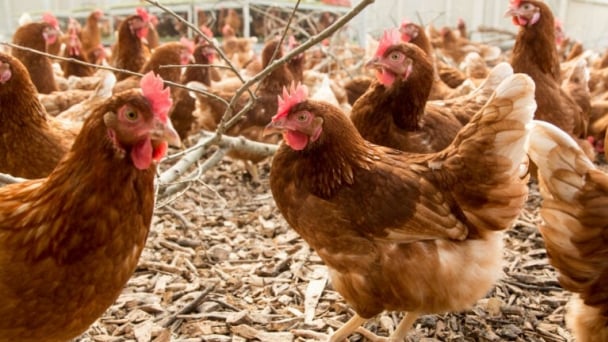
(VAN) The latest Business Benchmark on Farm Animal Welfare (BBFAW) reveals steady progress on farm animal welfare across the global food industry.
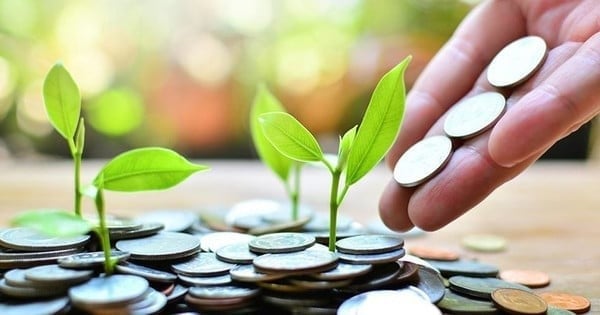
(VAN) Green credit is a financial policy that effectively supports environmentally friendly projects and activities today.
/2025/04/09/1049-2-165919_630.jpg)
(VAN) With a revenue of less than VND 30 billion/year, packaging producers are exempted from EPR liability under Decree No. 05/2025 newly issued.
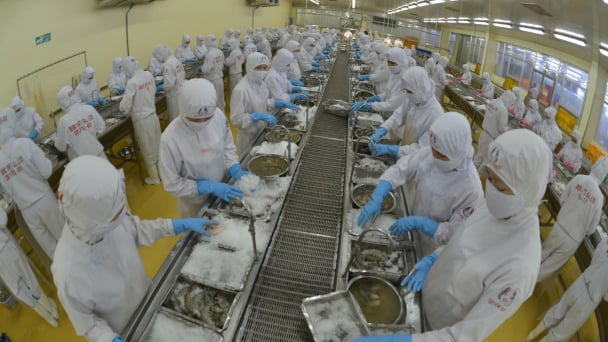
(VAN) Ministry of Agriculture and Environment has issued an Action Plan for sector's development in the coming period, aiming for a growth rate of 4% or higher and an export turnover of USD 65 billion.
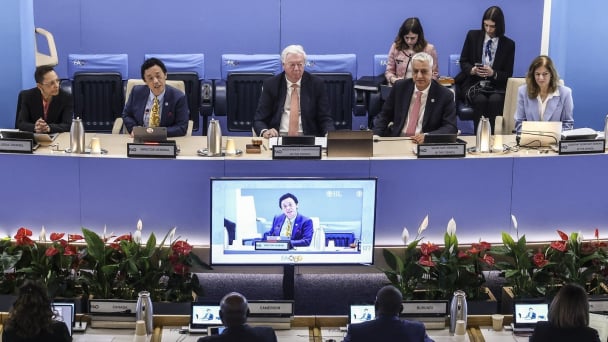
(VAN) The 177th Session of the FAO Council opened on Monday at the Organization’s headquarters in Rome.
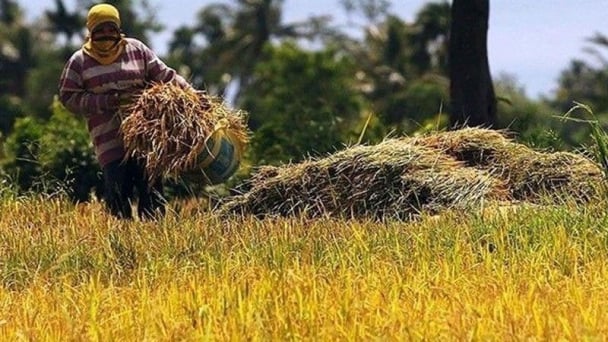
(VAN) In a statement, the Federation of Free Farmers (FFF) said the government must not be complacent over the reciprocal tariffs even if the Philippines will be slapped with the second lowest rate among US trade partners.
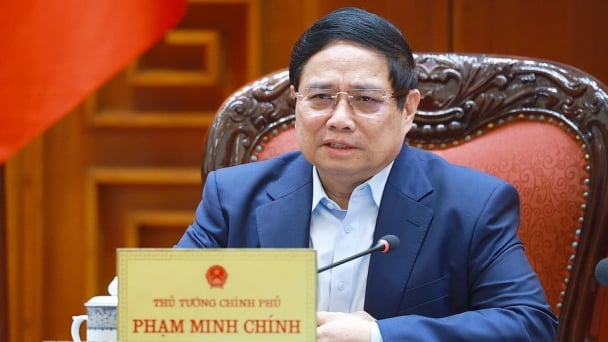
(VAN) On the morning of April 3, Prime Minister Pham Minh Chinh chaired a meeting with ministries following the United States' announcement of new tariff rates on imports from Vietnam.